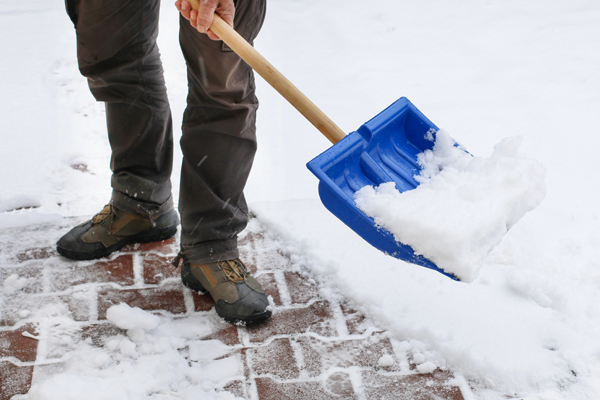Ohio slip and fall attorney – Winter months bring the accumulation of snow and ice in many parts of the country. And, of course, with snow and ice come an increased risk of slip and fall accidents. Here’s what you need to know if you decide to file a personal injury claim after a slip and fall on snow and/or ice in a public place.
The Property Owner’s Duty of Care and Winter Weather Hazards
Winter weather-related slip and fall accidents typically happen in parking lots or on sidewalks in commercial areas (outside businesses, for example), although homeowners need to pay attention to what’s happening on their property too.
It is almost universally true that property owners have a duty to exercise reasonable care when it comes to maintaining the safety of areas where the public (and especially customers) can reasonably be expected to be. That duty includes the periodic inspection of the property, and the removal/remediation of snow and ice within a reasonable time, to reduce the risk of falls and injuries. The failure to fulfill this legal duty can amount to negligence.
Often, property owners will have contracted with plow companies that perform snow and ice removal to keep their parking lots and sidewalks clear for pedestrians. Still, whether it is the owner performing these maintenance and cleaning activities, or a company hired by the owner, there is a duty of care to anticipate the dangers posed by snow and ice, and to maintain the property accordingly. The question to ask is whether the property owner’s conduct was reasonable considering all of the circumstances.
However, members of the public also have a duty to exercise reasonable care when walking in an area they know (or should reasonably expect) will be snowy and/or icy. Failing to act with reasonable care can reduce your recovery in a potential lawsuit, depending on the contributory/comparative negligence rules in place where the accident happened.
Reasonableness and the ‘Natural Accumulation’ Rule
When it comes to snow and ice removal, what is reasonable to expect of a landowner—and what a person using the sidewalk should reasonably expect to encounter—may depend on where the slip and fall accident occurred. In other words, what is reasonable in Ohio is not the same as what is reasonable in north Alabama.
And in some states, there is what’s known as a “natural accumulation” rule, which relieves a property owner of liability in connection with the natural accumulation of snow and ice, in most cases. As long as the property owner didn’t interfere with or alter the accumulation, and as long as no abnormal danger exists, it may be difficult to hold the property owner liable in states that follow this rule. Talk to an experienced personal injury lawyer to understand the property rules where you live, and how they might affect your case.
What You May Recover
If you slip and fall, you may be able to recover the cost of your medical treatment by suing the property owner and perhaps even the contractor who was responsible for clearing away snow and ice. You could also recover lost wages if you can demonstrate that your injury (and perhaps doctor’s appointments associated with it) caused you to miss work—or to work less than you otherwise would, because of the nature and extent of your injuries. In addition, you may be able to recover for the pain and suffering that the injury caused you, plus any negative impact on your regular activities, such as exercise, chores, or leisure pursuits. All of these components make up your personal injury damages.
Documenting Your Case
Because weather conditions change frequently, it’s important to document as much as possible about your accident and the area where you fell. If you can, take photos or send someone to take photos of the area as it looked around the time of the accident. Snow and ice are typically cleared on a regular schedule, so you want to make sure you can give your attorney an idea of how the area looked when you were injured. As soon as possible after your accident, write down everything you can remember about what happened, down to the last (seemingly insignificant) detail. That includes the names and contact information of anyone who may have witnessed the accident or who arrived on the scene in the aftermath.
Government Liability for a Slip and Fall
If your fall occurred on government property (such as a county parking lot or city sidewalk), you can’t usually just file a personal injury lawsuit against the government (at least not right off the bat). State and local governments are generally immune from liability for accidents, but they’ve also waived that liability in limited and specific ways. In most jurisdictions, you’ll need to follow a strict claim-filing procedure with the government agency that might bear liability, and you’ll need to get the process starter pretty soon after your accident (sometimes in as little as 60 days).
If you or a loved one were injured because of a negligent property owner, contact Wright & Schulte today. Ohio state law sets a two-year statute of limitations for accident lawsuits regarding personal injury, medical expenses, pain and suffering, lost wages and property damage. For a free, no obligation legal evaluation of your case, simply fill out the online form on the right or give Wright & Schulte a call at (937)-222-7477.



